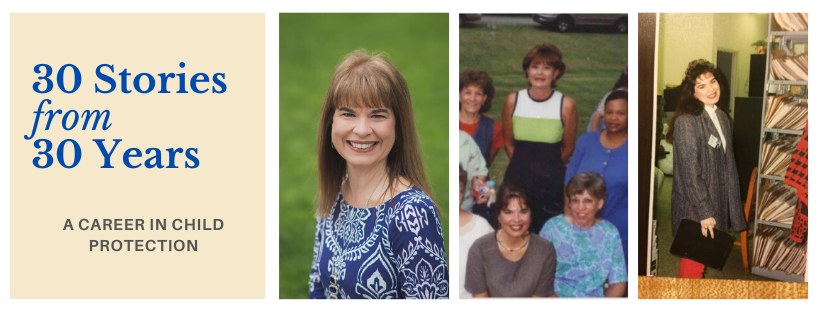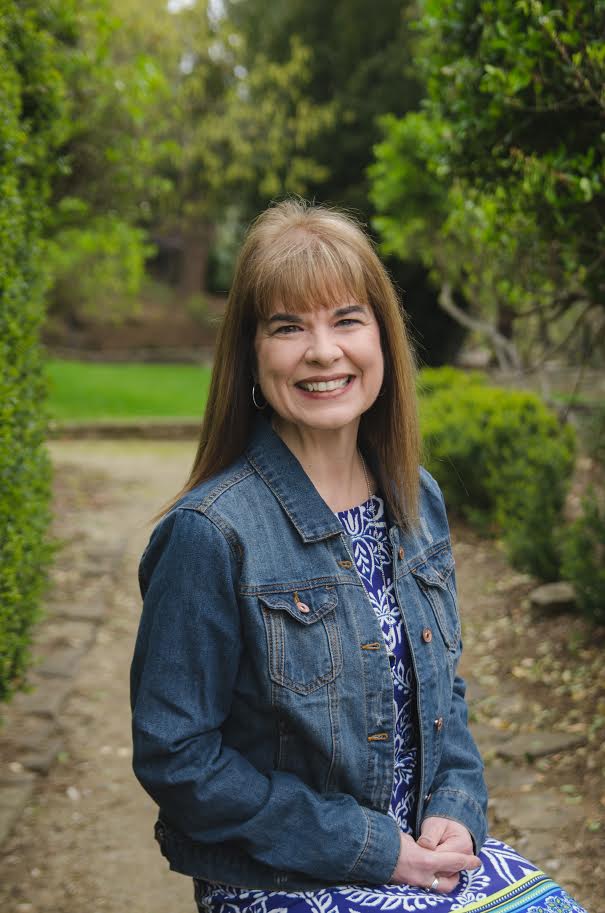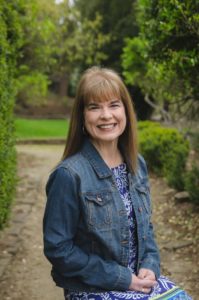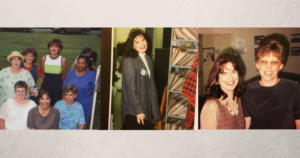
By Tammi Pitzen, Executive Director of the Children’s Advocacy Center of Jackson County.
This is story #3 in Tammi Pitzen’s series of 30 stories from her 30 years working in child welfare.
You can read all the stories here.
Change Can Build Resiliency
Right about now we could all use a little more resiliency with COVID-19 stealing our 2020 spring.
Thirty Stories from Thirty Years is a look back over a career in child protection and the small things that helped the work continue.
Many of you know that I grew up in the Deep South and began my career in child protection there as what was called a Crisis Intervention Worker, CI for short. It was my role to investigate child abuse reports on behalf of the state of Louisiana. It was my first “real-world” job and continues to be the basis of many of the “real-world” beliefs I hold true to today.
If you aren’t from the South, let me explain some of the culture around raising children with values and beliefs.
In the South, really good people use corporal punishment to instill “goodness”, “integrity”, and good old-fashioned values in their children. It was difficult at best to decipher what was abuse and what was “culture”.
The standard line was then, and still is today, “You can ____ (insert your favorite word – hit, whip, beat, knock, slap) your child as long as you do not leave a mark.”
This was still the litmus test back in the early 90’s. In fact, in Louisiana it was not uncommon for teachers or principals in public school to hit children with ping-pong paddles or homemade paddles, without getting parental permission before hand.
Some of the more tenured school employees had really unique and well-thought-out decorated paddles that were a testament to fine craftsmanship. They might have holes drilled in them, have a high lacquered shine or very artistic handles. Some were fondly named by their owner. I have no idea if this is still the practice in schools. I suspect it is still the practice in homes.
Early on in my career I got many physical abuse reports assigned to me that were, what some would call, “discipline gone too far.”
I used to keep a list of objects that had been used to discipline children that came to my attention during investigations. I still remember most of these: hairbrushes, combs, wooden spoons, spatulas, electrical cords, bamboo shoots, switches (basically, small thin tree limbs), paddles – as described above, wooden chair legs, yardsticks, rulers, broomsticks, fists, open hands, socks with a bar of soap (yes, true story), rope, belts, shoes, flip-flops, slippers, baseball bats, etc. I could go on but I think you get the gist of it.
Those of you not from the South would see this list and be incredulous that anyone would ever think using these items would be anything but abusive. But Southerners react in the moment, swiftly and quickly, with whatever they can get their hands on. AND they do so out of love for their children and out of fear of their children growing up to be irresponsible or worse yet a “thug.”
In the beginning part of my career, parents would usually get a “pass” the first time a report was made of bruises being left as a result of discipline — depending on where the bruises were, how severe they were and a few other measures that seemed reasonable at the time in that place.
In the mid 90’s that all changed. It actually was the unintended consequence of new policy that was passed through legislature.
Or at least as I remember, it was more than just policy written by a social service employee somewhere in a higher up position. It was pretty much forced out as a “no choice” new policy. In the state of Louisiana at that time, as a result of this policy, no record of any unsubstantiated report of abuse could be kept for longer than 2 or 3 years. At the end of the time frame, they would be shredded. The reports, the notes, the medical exam etc. The unintended consequence was that no longer would there be unsubstantiated abuse in cases where marks, either intentional or unintentional, were left on a child as a result of discipline.
No one wanted to be the case worker that unsubstantiated a case with a bruise, that later escalated to “real” abuse. Reading that now seems absurd. Of course it was abuse all along. There are too many stories and too many bruises to even begin to write about here.
I could write a whole book on bruises alone. Sad but true.
You read this and wonder how is this about resiliency? For me, this passing of a new policy was a pivotal moment in my career and in my desire to look for alternatives to give parents regarding discipline methods.
It was no longer my discretion. No longer was it part of accepted culture.
It doubled my paperwork because I had more founded cases than I had before the policy. It challenged my beliefs around culture. It also made me come at my job with more compassion and empathy than before. The intention behind the abuse was no longer the deciding factor but was only a consideration in how to move forward.
The challenge to learn more about the impact of physical discipline on children became real and now there is actual research out there to address this issue.
The resiliency part comes in the way to move forward with change.
Change is the one constant in the field of child abuse. Some change is good. Some change is bad. Some change is not the expected change but the unintended consequence of some other change.
Resiliency comes in being able to adapt and move forward.
Self-care comes with learning what changes are not ones you are willing or able to make.
Self-care comes in knowing that policy and change in policy helps to create boundaries in this work.
Self-care is recognizing there is always something to learn from change and that many policies work because the things we learn from past experiences are embedded in that policy change.
Ironically, in this particular case as in many before and many after, the change did not come from any particular learning. It was a political move. Someone somewhere that had a bit of a reputation to keep clean, who also had “pull”, somehow got caught leaving bruises on a child.
The unintended consequence was actually the right reason to begin to try to change the culture.
Instead of having more discretion in the defining of abuse when it came to bruises, it actually, for most workers across the state, defined it more narrowly. As a result of that, the messaging changed.
It changed from you can hit your child as long as you don’t leave a mark — to let’s talk about other methods you can use to help teach your child discipline that do not involve hitting. What are “alternatives” to physical discipline?
Some of the popular ones are Love and Logic and Conscious Discipline. These provide guidance and strategies for parents. They are really more trainings/parenting classes. Conscious Discipline was developed for classroom management and then began being taught to parents.
There are books on both of these methods. There are online resources, as well, for both of these techniques. There are others but these are the ones I am most familiar with.
April is Child Abuse Prevention Month.
April also seems to be stay at home with your children month as a result of COVID-19.
Maybe you have always wanted to learn about other parenting strategies. These strategies are a lifetime commitment of consistency in parenting.
Maybe today is the day you look into it.
This is story #3 in Tammi Pitzen’s series of 30 stories from her 30 years working in child welfare.
You can read all the stories here.
#ThirtyFromThirty #30StoriesFrom30Years #ACareerInChildProtection






